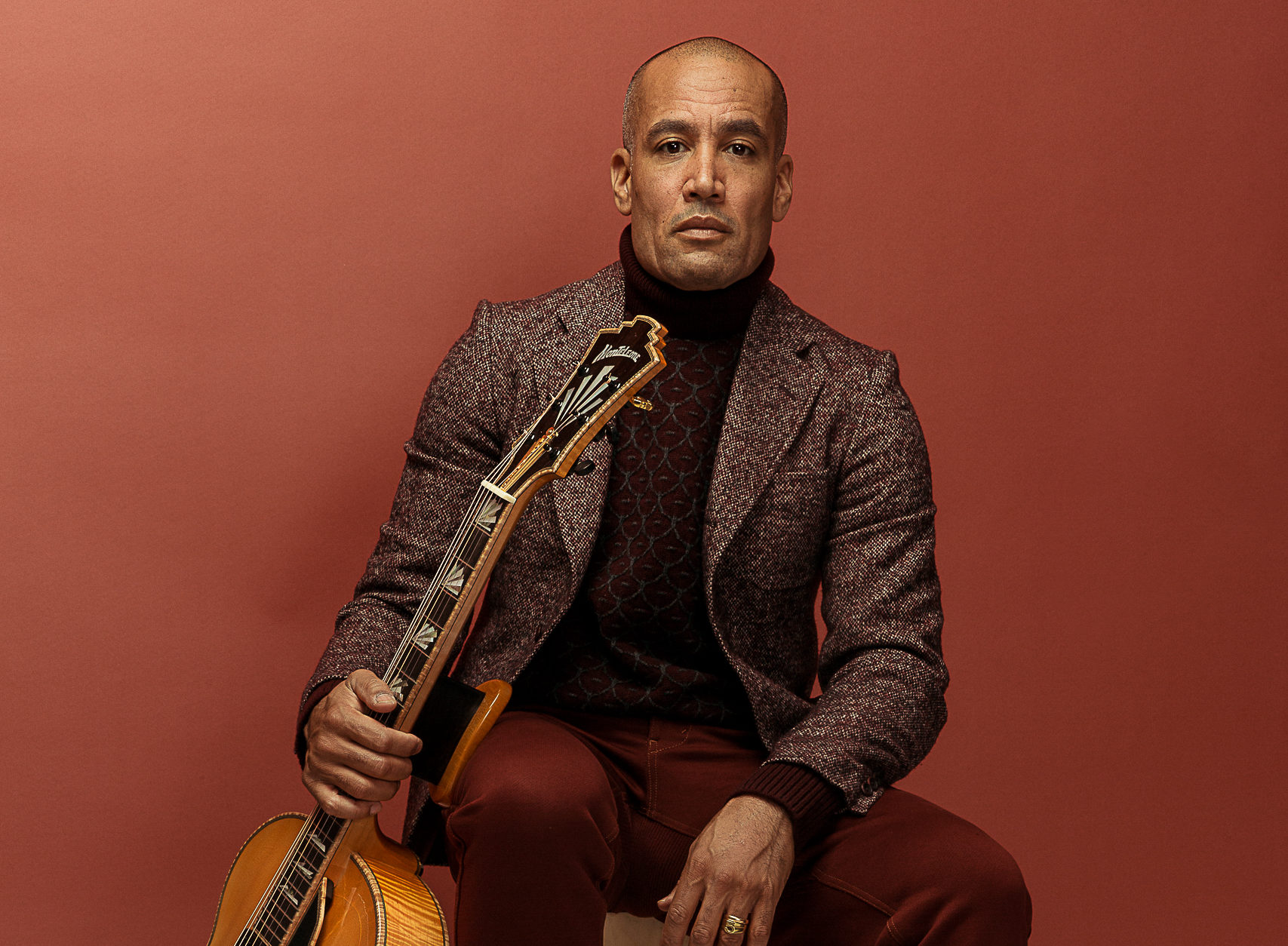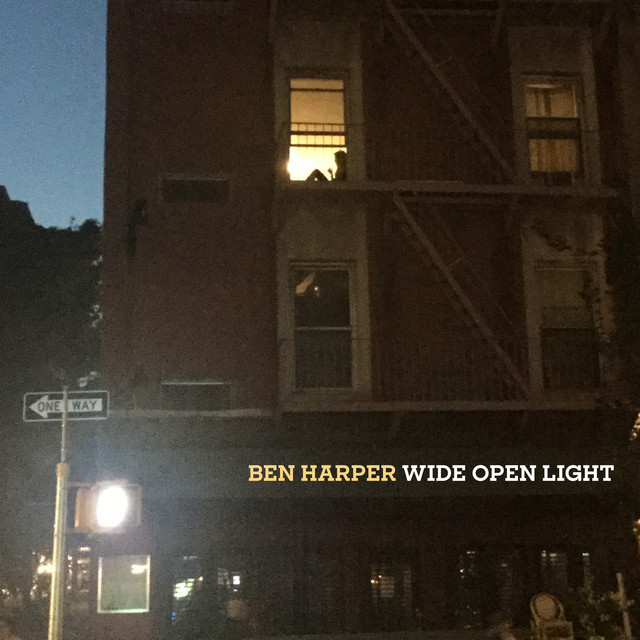Biography
Ben Harper is a Grammy Award winning singer-songwriter and multi-instrumentalist based in California.
Ben Harper’s new album Winter Is For Lovers unfolds entirely without words. It is a profoundly emotional story told exclusively through the nuance of sound. The narration is provided by a single lap-steel guitar and the music references blues and folk as well as flamenco, Indian and classical, but it transcends any specific style. In that, the album philosophically evokes the American Primitive movement pioneered by John Fahey and Leo Kottke, utilizing masterful playing to create an impressionistic and affecting work. As Harper explains, “Hopefully it cuts deep enough where people can see their own experiences in the music.”
Harper is a three-time GRAMMY winning musician and songwriter. He has produced records ...
Ben Harper is a Grammy Award winning singer-songwriter and multi-instrumentalist based in California.
Ben Harper’s new album Winter Is For Lovers unfolds entirely without words. It is a profoundly emotional story told exclusively through the nuance of sound. The narration is provided by a single lap-steel guitar and the music references blues and folk as well as flamenco, Indian and classical, but it transcends any specific style. In that, the album philosophically evokes the American Primitive movement pioneered by John Fahey and Leo Kottke, utilizing masterful playing to create an impressionistic and affecting work. As Harper explains, “Hopefully it cuts deep enough where people can see their own experiences in the music.”
Harper is a three-time GRAMMY winning musician and songwriter. He has produced records for artists including Mavis Staples, The Blind Boys of Alabama, Natalie Maines, Ricky Lee Jones and more. He has recorded albums both alone and with his longtime band The Innocent Criminals, establishing a fanbase throughout the world. And while he incorporates a number of different styles into his unique sound – classic soul, reggae, rock, he is, at his very core, a blues and folk musician.
His roots in folk and blues are undeniable and run deep. It is a legacy that begins in his family’s store in Claremont on the western edge of the California desert. The Folk Music Center was opened by Harper’s grandparents in 1958 and played an integral part in the thriving Southern California scene, hosting such luminaries such as Sonny Terry and Brownie McGhee, the Rev. Gary Davis, Doc Watson and the previously mentioned John Fahey. Throughout his childhood Harper worked at the Folk Music Center, repairing rare guitars and meeting iconic musicians such as David Lindley, Ry Cooder, Leonard Cohen, Taj Mahal, Jackson Browne and others who would come in to visit, conduct business, and to sometimes sit and play. Even as a child Harper says it was the haunting sound of the lap-steel guitar that stopped him in his tracks.
“Before I started to actually play, it was the instrument that pulled me in,” Harper explained. “My first deep dive with the slide was my mom’s record collection. She had Hawaiian slide records, the blues of Son House and Blind Willie Johnson, but also classical guitar records by Andrés Segovia and flamingo albums by Sabicas and Carlos Montoya. But when I started to actually play, I would listen to Blind Willie Johnson, putting the needle back over and over.”
As his playing progressed, Harper learned finger picking from slide master Taj Mahal, who was a friend of his father’s (and would later take a young Harper on tour as a member of his band.) He also began spending evenings under the tutelage of local musician Chris Darrow, a highly influential, albeit under the radar, figure in the Southern California country rock and bluegrass scene who played with visionary psych folk band Kaleidoscope and The Nitty Gritty Dirt Band. “When Chris Darrow taught me his song “Whipping Boy” (Harper’s eventual first single) he unlocked a whole new way to play slide for me,” Harper said. “I had been playing lap steel religiously for a few years. Literally falling asleep with my instrument. And if Chris saw you committing to your instrument like that, he would invite you over. He was as musically giving as any musician I have met with the exception of Taj. Chris Darrow was a lap-steel virtuoso. He played like John Lee Hooker or Son House. He could channel the black roots of the lap steel in way that just amazed me.”
The lap-steel guitar is an almost mythical instrument whose origins remain a mystery. African Americans in the south had early slide instruments like the diddley bow, and the Hawaiian influence cannot be ignored. From his grandfather, a young Harper was exposed to instruments and sounds from all around the world. It is, in large part, why he is able to so effortlessly draw upon such a variety of influences, merging classic Son House blues with the Indian slide playing of V. M. Bhatt or Debashish Bhattacharya in a single fluid movement.
Drawing on all of these inspirations, the idea for Winter Is For Lovers began more than a decade ago. “Something just clicked in my awareness of my lap-steel playing and what I thought was possible on the instrument,” Harper explains. “I could hear what I was doing right and what I was doing wrong. And I saw the potential of where it could go. Around that same time I was reading the book Infinite Jest. In an interview David Foster Wallace said it was actually a series of short stories fused into a much bigger narrative. So that’s what I decided to do with this record. To create it as a single composition made up of individual sections. Since then I’ve been thinking about this record and composing it in plain sight, taking certain pieces and performing them during live shows, making sure it all fit into the bigger vision.”
Conceived by Harper as a “lap-steel symphony,” the tracks of the record serve more as markers to delineate a listener’s location. These sections have been named for geographic locations that, over the years, helped to inspire the record. The section “Inland Empire” is titled for the region of Southern California where Harper grew up and learned to play. It is an intensely affecting piece, using melodic picking and a lyrical slide flourishes to evoke a sense of longing and reminiscence “It’s the section that feels most like me, so I named it after the place I come from,” Harper explains. “It’s the accumulation of my having a relationship with the lap steel for as long as I have now.”“London” is inspired by some of the great English players. “You can hear Led Zeppelin in there,” Harper says. “There’s a definite Jimmy Page John Martyn, Richard Thompson element.” The track “Paris,” he says, “is really just a walk through a Paris park on a beautiful day. It’s what that experience sounds like to me.” Winter Is For Lovers is an intimate and ambitious creation. The sound of an accomplished musician operating without any semblance of a safety net. It is an artistic acknowledgement of those who came before, and an affirmation of Harper’s years of unwavering exploration on guitar. But more than all of that, the record is proof that a meticulously composed work played on a single lap-steel can wield the same expressive power as an entire symphony.





